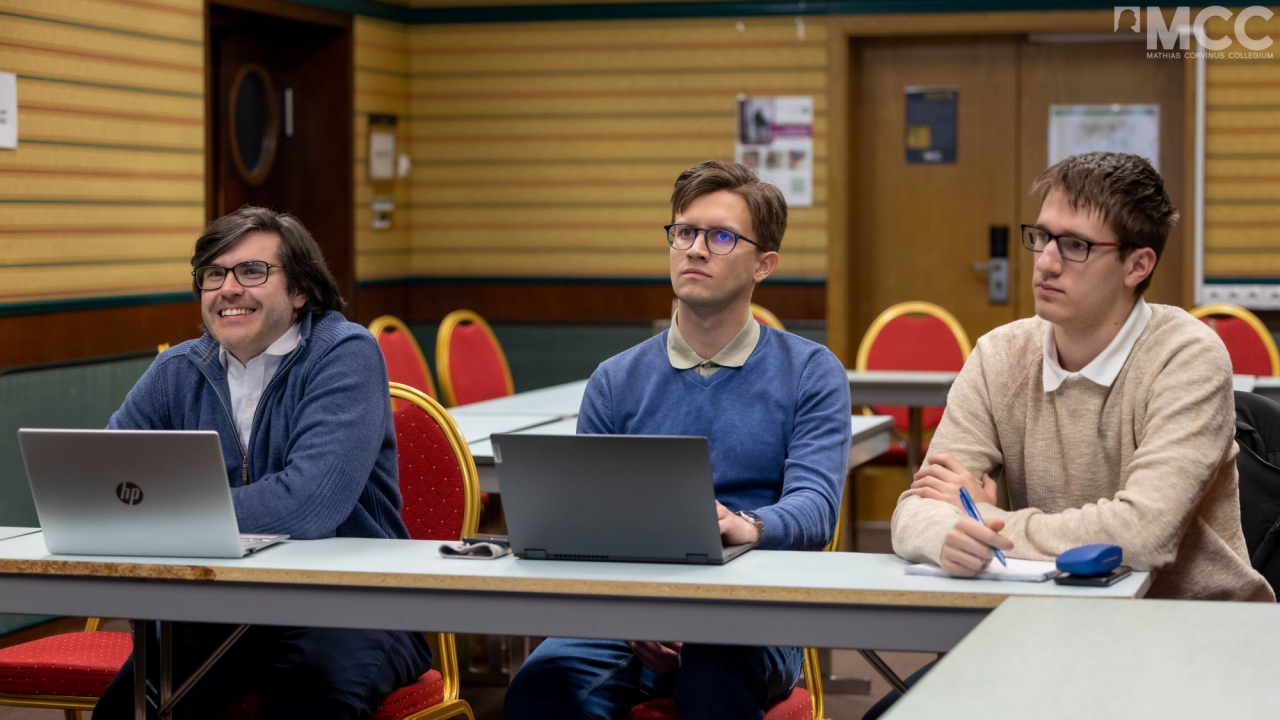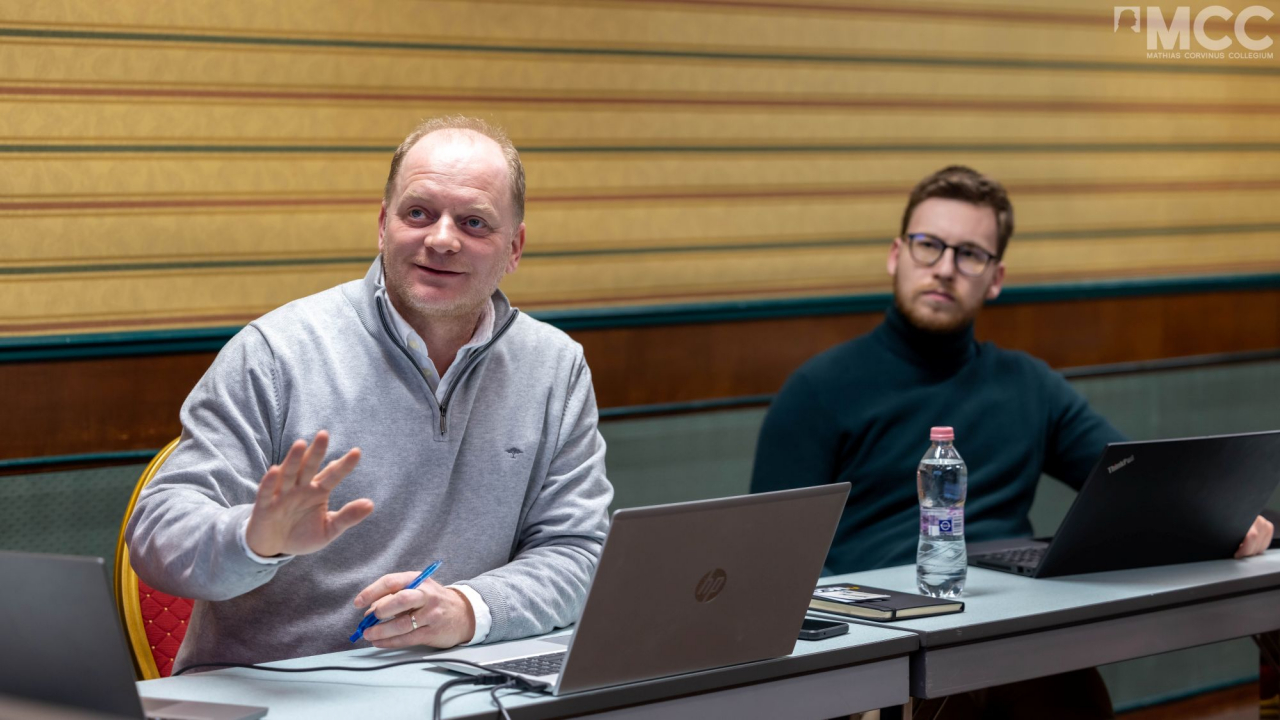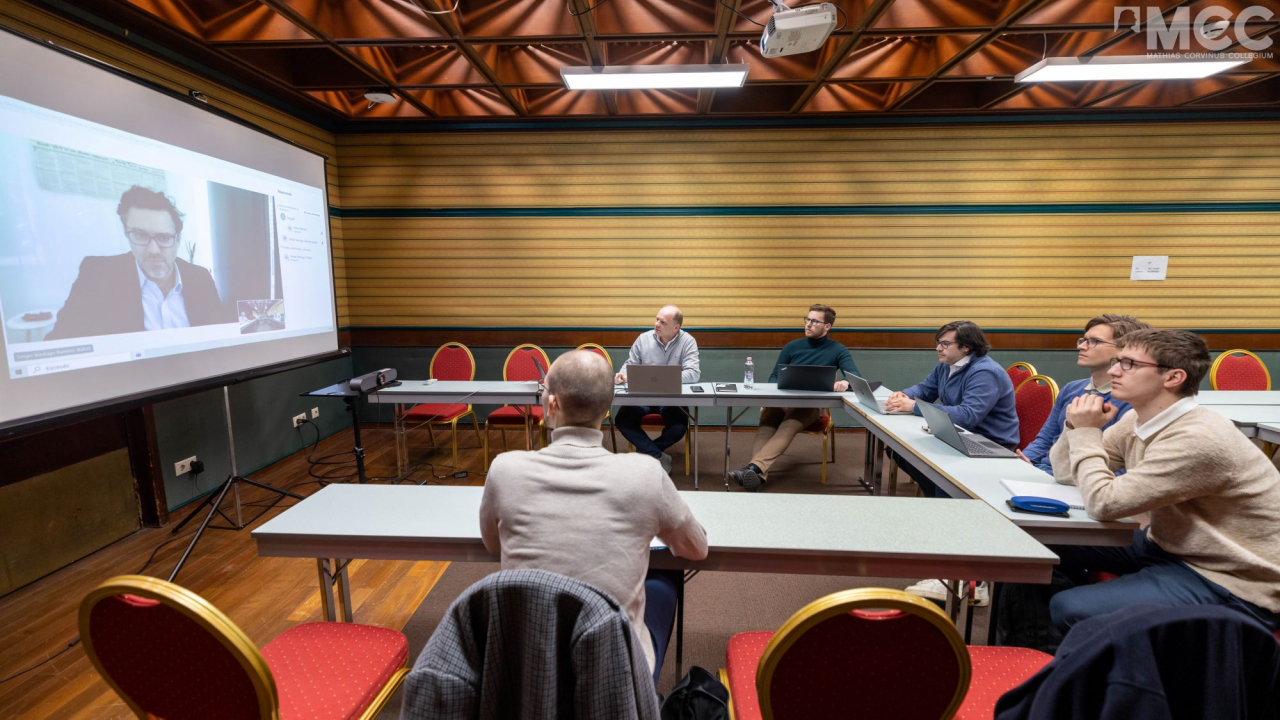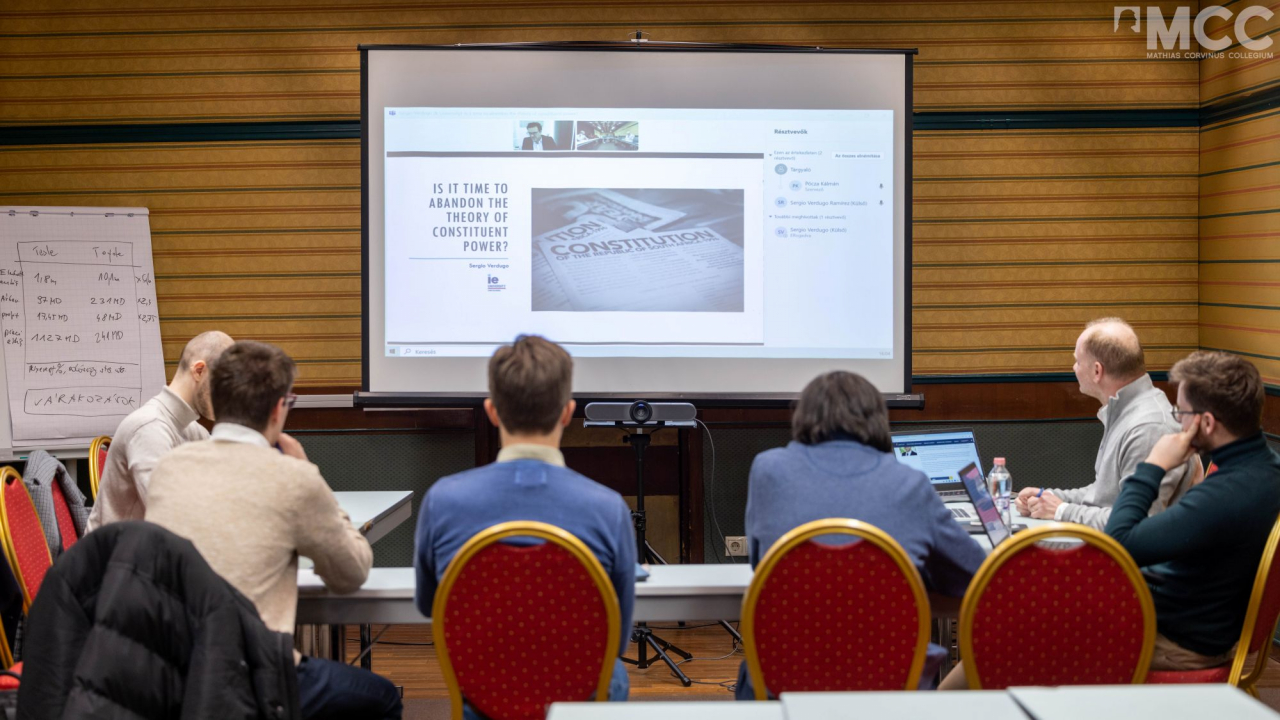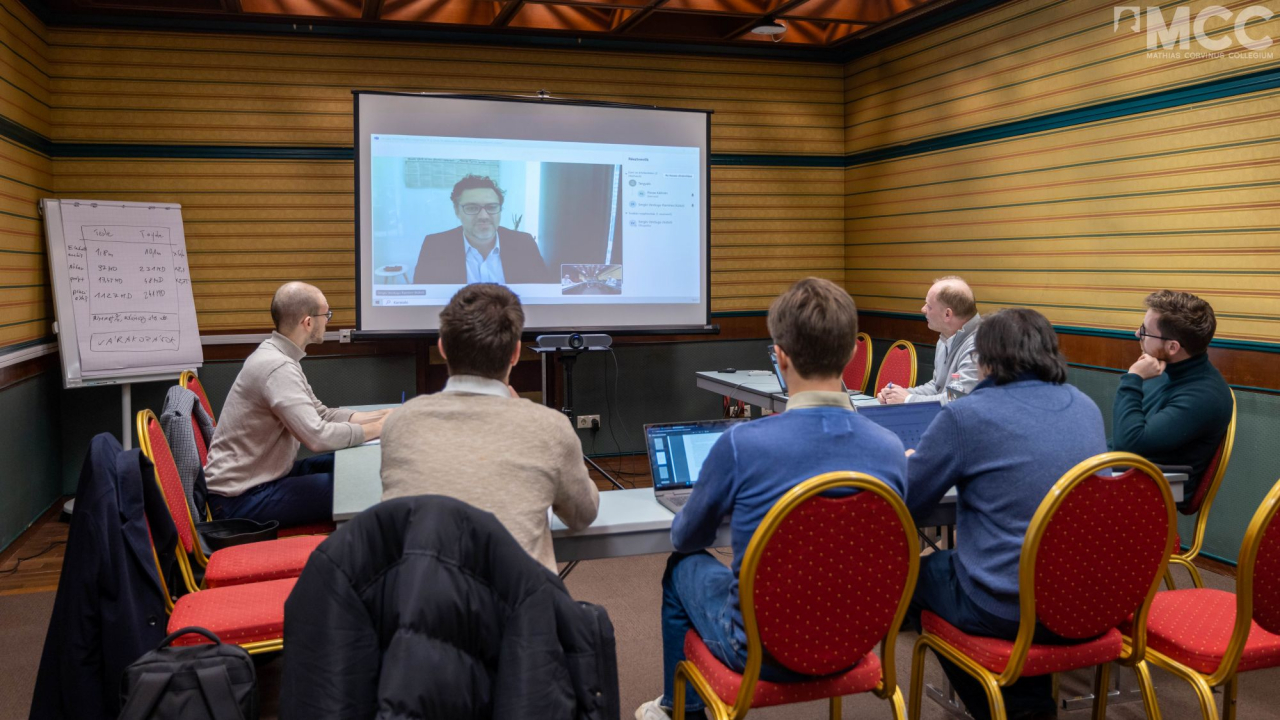Reading time: 2 minutes
Sergio Verdugo, Assistant Professor of Law at IE Law School in Madrid and a leading scholar in constitutional theory, recently delivered a thought-provoking lecture on the viability of the theory of constituent power. As part of our research seminar series, his presentation critically examined the basic concept behind constitution-making and its implications for modern democracies.
In his lecture, Prof. Verdugo challenged the widely accepted notion that constituent power - understood as the unlimited authority of the people to create a new constitutional order - remains a useful framework for constitutional analysis. He argued that the theory is not only conceptually flawed but also carries significant risks when applied in political practice.
Prof. Verdugo identified two key criticisms of the theory. First, he noted that constituent power often relies on an idealized and romanticized view of constitutional founding moments, obscuring the complex realities of constitution-making processes. Second, he pointed out that in ideal democratic conditions where institutions function effectively, the radical nature of constituent power theory becomes unnecessary, making it difficult to justify its use in either scenario.
Prof. Verdugo argued that the conventional approach to constituent power theory faces challenges, particularly because political actors are likely to favor a simplified version that serves opportunistic goals. He also warns against romanticizing the concept of “the people”.. Instead of relying on constituent power, Prof. Verdugo suggested that a more accurate understanding of founding moments can help societies avoid past mistakes. Ultimately, he suggested that a new approach to constitutional legitimacy should move beyond constituent power theory, exploring alternative approaches that focus on equality, political rights, and competitive democracy.
Following his lecture, students and faculty engaged in a dynamic discussion on the future of the theory and the alternatives to the constituent power framework.

